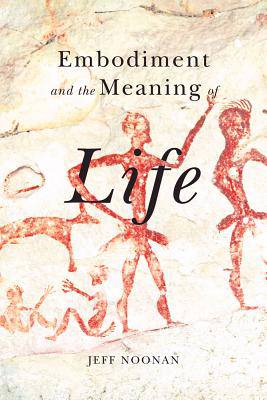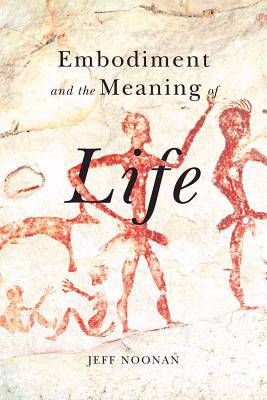
Door een staking bij bpost kan je online bestelling op dit moment iets langer onderweg zijn dan voorzien. Dringend iets nodig? Onze winkels ontvangen jou met open armen!
- Afhalen na 1 uur in een winkel met voorraad
- Gratis thuislevering in België vanaf € 30
- Ruim aanbod met 7 miljoen producten
Door een staking bij bpost kan je online bestelling op dit moment iets langer onderweg zijn dan voorzien. Dringend iets nodig? Onze winkels ontvangen jou met open armen!
- Afhalen na 1 uur in een winkel met voorraad
- Gratis thuislevering in België vanaf € 30
- Ruim aanbod met 7 miljoen producten
Zoeken
Omschrijving
The long tradition of pessimism in philosophy and poetry notoriously laments suffering caused by vulnerabilities of the human body. The most familiar and contemporary version is antinatalism, the view that it is wrong to bring sentient life into existence because birth inevitably produces suffering. Technotopianism, which stems from a similarly negative view of embodied limitations, claims that we should escape sickness and death through radical human-enhancement technologies. In Embodiment and the Meaning of Life Jeff Noonan presents pessimism and technotopianism as two sides of the same coin, as both begin from the premise that the limitations of embodied life are inherently negative. He argues that rather than rendering life pointless, the tragic failures that mark life are fundamental to the good of human existence. The necessary limitations of embodied being are challenges for each person to live well, not only for their own sake, but for the sake of the future of the human project. Meaning is not a given, Noonan suggests, but rather the product of labour upon ourselves, others, and the world. Meaningful labour is threatened equally by unjust social systems and runaway technological development that aims to replace human action, rather than liberate it. Calling on us to draw conceptual connections between finitude, embodiment, and the meaning of life, this book shows that seeking the common good is our most viable and materially realistic source of optimism about the future.
Specificaties
Betrokkenen
- Auteur(s):
- Uitgeverij:
Inhoud
- Aantal bladzijden:
- 280
- Taal:
- Engels
Eigenschappen
- Productcode (EAN):
- 9780773553491
- Verschijningsdatum:
- 21/03/2018
- Uitvoering:
- Paperback
- Formaat:
- Trade paperback (VS)
- Afmetingen:
- 150 mm x 226 mm
- Gewicht:
- 408 g

Alleen bij Standaard Boekhandel
+ 110 punten op je klantenkaart van Standaard Boekhandel
Beoordelingen
We publiceren alleen reviews die voldoen aan de voorwaarden voor reviews. Bekijk onze voorwaarden voor reviews.











